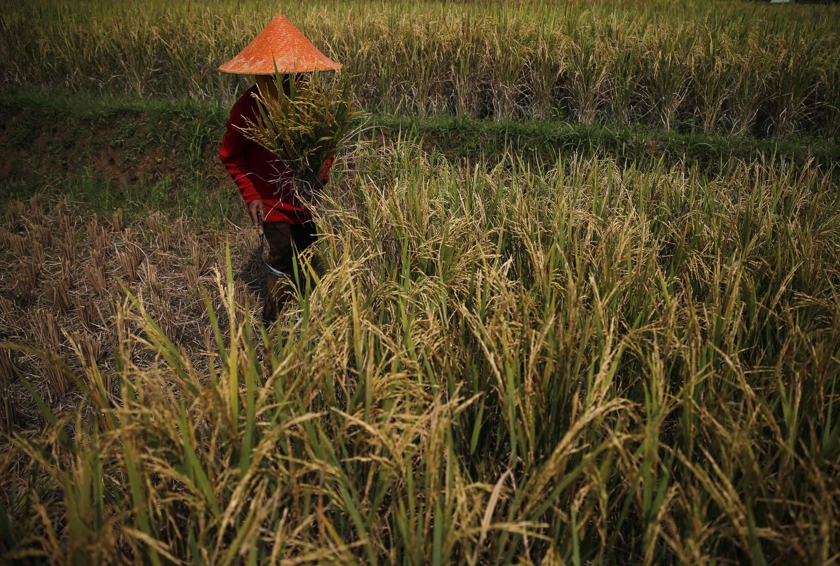JULY 29 ― In pursuit of the collective goals of the Organisation of Islamic Cooperation (OIC), the true potential of member states from East and South Asia (OIC-ESA) is relatively untapped.
This could be due to the sole prominence of member states from the Middle East and North Africa (MENA).
OIC-MENA is said to have clout and represents the ideational core of the OIC but OIC-ESA, too, has several systems, capacities, and platforms and could contribute significantly and have a bigger voice in the organisation. This simply needs greater political will, synergy and mobilisation.
A good starting point for the OIC-ESA to realise its potential is within the Islamic Organisation for Food Security (IOFS), an institution designed to ensure sustainable food security in member states.
This is where the OIC-ESA can be most instrumental in promoting best practices and benefit from the tangible outcomes of the IOFS.
According to recent research by the Statistical, Economic and Social Research and Training Centre for Islamic Countries (SESRIC), OIC-ESA members featured significantly in the top 10 agricultural producers of the OIC and as recipients of a large share of intra-OIC agricultural trade in 2018.
The OIC-ESA’s strong agricultural sectors and trade systems translate to a high level of expertise that OIC members should tap into to improve food security strategies.
The OIC-ESA has been playing an exemplary role in the 16 strategic programmes in the IOFS.
These programmes are deemed important to counter the effects of the Covid-19 pandemic and other natural disasters, which impact on food availability and supply.
OIC-ESA member states have been contributing as subject-matter experts and authorities to aspects of food security, production, and agricultural technology.
The IOFS has also established centres of excellence for rice. With the IOFS’ proposal of a five-year action plan for rice development, the OIC-ESA is poised to take a leadership role with its expertise in rice production.
Indonesia and Bangladesh are the largest producers of rice in the OIC, followed closely by Pakistan, making a good case for this.
Beyond knowledge sharing and capacity building, the OIC-ESA could also play a pivotal role in food security-related progress by striking a balance between self-sufficiency and overall food security.
This is crucial, considering how 23 out of the 43 countries that require external assistance for food are OIC nations.
Dhaka’s recent proposal to the OIC for a joint agricultural project with Sub-Saharan African OIC member states (OIC-SSA) could be the solution to this pressing problem.
In these projects, OIC-ESA could provide its technical know-how and workforce; OIC-MENA may contribute in terms of capital and finance, and OIC-SSA could provide land areas for farming.
This would necessitate deeper cooperation and commitment among OIC-ESA states but, if done right, could be an immense contribution to the OIC.
Some OIC-ESA member states can even leverage existing memberships in two other multilateral mechanisms with overlapping goals.

This will encourage consistent dialogue and a check-and-balance system to ensure shared objectives are achieved. These are Asean’s Strategic Plan of Action on Food Security 2021-2025 and the Developing-8’s decennial road map which prioritises agriculture and food security.
This strategy is similar to how the member states of the OIC-MENA co-operate proactively through the Gulf Cooperation Council and Arab League to advance goals in line with the OIC’s. This could be the reason behind the OIC-MENA’s strength, influence and hold on the status quo.
The OIC could benefit from the collective effort of all member states as they work towards pandemic recovery. Hence, it would be counter-productive if only a handful of historically influential members drive major agendas.
The OIC-ESA is a promising subset despite regional challenges. If anything, this only reaffirms its resilience. The OIC-ESA’s enhanced role in the IOFS will, therefore, increase its prominence, legitimacy, and voice within the organisation.
So, will the OIC-ESA please stand up?
* Yanitha Meena Louis is a researcher at the Institute of Strategic and International Studies (ISIS) Malaysia.
** ISIS Malaysia’s 34th Asia-Pacific Roundtable takes place on August 17-18. To register, click here.





















